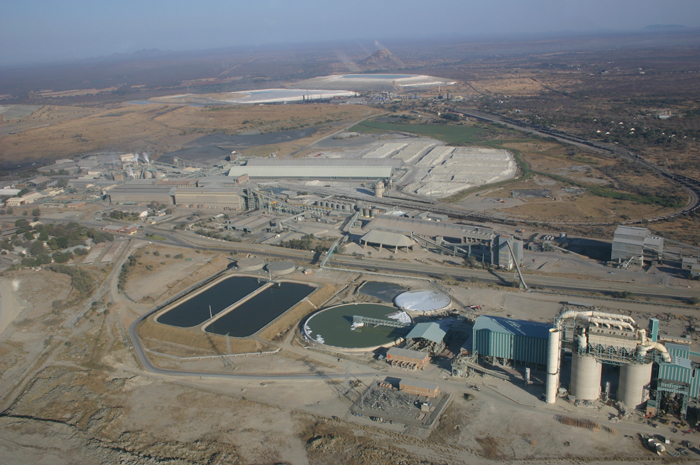It is estimated that Foskor’s Phalaborwa mines hold ore reserves of more than 1,5 billion tons of some of the best phosphoric rock in the world. This is equivalent to 92 more years of life for the mine with current targeted annual production. The beneficiated phosphate rock and the quality of products produced at Foskor’s plant in Richards Bay are sought after internationally.
Despite the more than enough ore as well as manufacturing capabilities, Foskor has been plagued by production challenges and has not been able to meet the demands of the local agriculture sector. South Africa remains highly reliant on imports of fertilisers such as monoammonium phosphate (MAP), resulting in local producers missing out on the advantage of locally produced and cheaper inputs, especially Foskor’s MAP, as it is supposed to be a strategic asset for South Africa.
SA Graan/Grain interviewed Riaan Rademan, before his resignation as CEO of Foskor in March this year.

Turning the ship around
Rademan was appointed in July 2020 to implement a turnaround strategy. His mandate from the Foskor board was to develop an economic model for the business turnaround and realise increased production within three years.
However, COVID and the subsequent total lockdown that lasted several months have delayed the implementation of the turnaround strategy by at least twelve months, according to Rademan.
Obstacles to overcome
Foskor has an open operating model which means that it is highly dependent on the performance of other industries such as Transnet, who transport the beneficiated rock 850 km from the mines in Phalaborwa to the plant in Richards Bay. ‘Foskor produces roughly between 1,8 million and 2,3 million tons per annum beneficiated phosphate rock and in order to keep production at the targets set, the company needs to transport nine to ten trains per week. Transnet is currently averaging only seven – this has a huge impact on production,’ Rademan added.
Another aspect that has had an influence on operations are recent incidents of political unrest in KwaZulu-Natal. During the protests in July 2021, several fires at the Richards Bay harbour impacted Portnet’s capacity to manage import and export cargo at the harbour. Rademan explained that some cargo ships had to wait up to 30 days to load and offload cargo at an additional cost of between $25 000 and $40 000 per day. Production at Foskor’s plant in Richards Bay is highly dependent on the import of sulphur and ammonia.
Incidents of political unrest have also meant that staff and even international role-players and guests feel unsafe at the plant, leading to a lack of operating personnel. Several highly skilled employees have also left the company to pursue opportunities elsewhere, resulting in a drainage of skills.
Adding to the company’s woes, power and water supply from the municipality in Richards Bay have been highly unreliable, leading to more production interruptions, Rademan explained. They have called on government to ensure that the infrastructure remains in place for Foskor to meet its targets and for personnel to feel safe at work.
 Fertiliser prices
Fertiliser prices
The dramatic increase in the prices of phosphoric acid and MAP due to increased demand has had a major impact on agriculture in South Africa. Prices are set during negotiations overseas and are further influenced by the rand dollar exchange rate as well as higher shipping costs and diesel prices.
The way forward
According Julian Palliam, interim president and CEO of Foskor, Foskor is able to produce quality products and the implementation of the turnaround strategy will ensure increased production. ‘We believe our product ensures better yields and gives producers a strategic advantage. Lots of customers globally want to buy our product. The fact that our ore has lower cadmium levels makes it desirable for especially countries in the European Union. Foskor can without a doubt be a strategic resource for agriculture worldwide and more importantly for producers in South Africa,’ said Palliam.



















